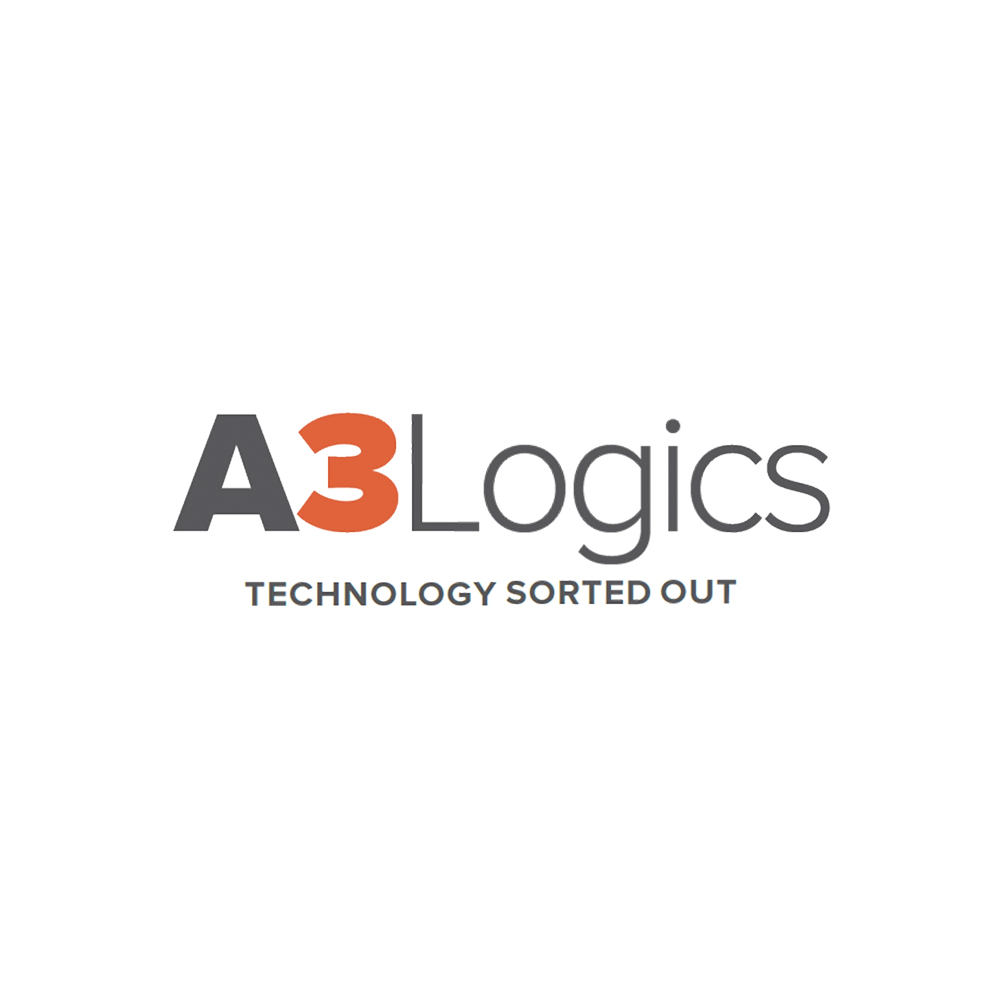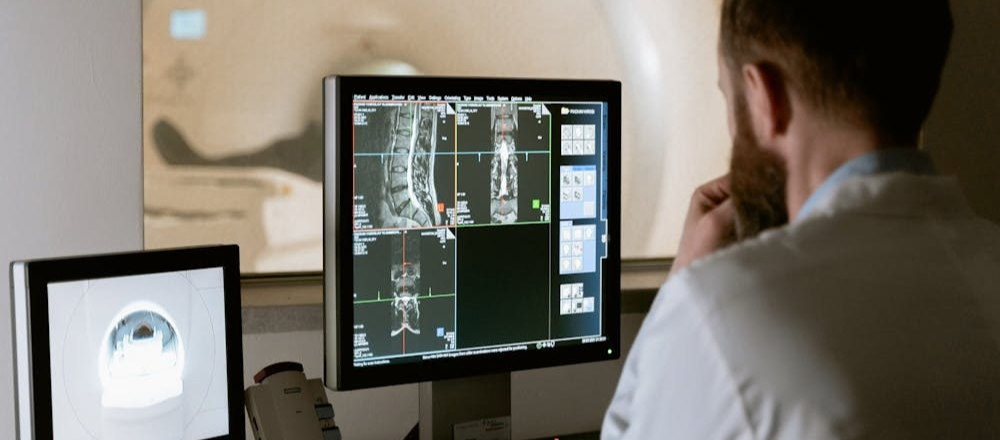With new regulations and reforms perpetually coming into effect, the healthcare industry is amid a sea of new changes. Continuous technological developments and innovative healthcare solutions enable tech-savvy millennial consumers to use technologies and tools that provide ease to manage their health data and information proactively like never before. To meet the increasing regulatory requirements and stay compliant with HIPAA (Health Insurance Portability and Accountability Act), Salesforce provides Health Cloud that offers out-of-the-box data protection with modern collaboration and more innovative workflows that meet HIPAA Compliance and processes.
Overview of HIPAA Compliance Guidelines
The Health Insurance Portability and Accountability Act (HIPAA) was enacted in 1996 to establish national standards for protecting patient health information’s privacy and security. The main goal of HIPAA is to ensure that patient information is handled and stored securely and confidentially. With the increasing use of electronic health records (EHRs), HIPAA has become increasingly important in the healthcare industry.
Explanation of the purpose of HIPAA
HIPAA was enacted to protect patient health information’s privacy and security. The law mandates that healthcare organizations implement appropriate safeguards to protect patient health information’s confidentiality, integrity, and availability. The purpose of HIPAA is to ensure that patients have control over their health information and to protect their privacy rights.
Discussion of the specific rules and requirements of HIPAA
HIPAA has specific rules and requirements that healthcare organizations must follow. These rules include the Privacy Rule, which regulates the use and disclosure of protected health information (PHI), and the Security Rule, which requires organizations to implement appropriate safeguards. The Breach Notification Rule requires organizations to notify patients when there is a breach of their PHI. HIPAA also requires administrative, physical, and technical safeguards to protect PHI.
Importance of complying with HIPAA regulations in the healthcare industry
HIPAA compliance is critical in the healthcare industry because it ensures patient information is handled and stored securely and confidentially. Failure to comply with HIPAA regulations can result in significant fines and legal action. Additionally, non-compliance can damage the reputation of healthcare organizations and erode patient trust.
As healthcare organizations increasingly rely on electronic data interchange (EDI) to exchange patient health information, they must work with an electronic data interchange consultant to ensure they comply with HIPAA regulations. Outsourced EDI services can also provide additional expertise and support to ensure organizations meet HIPAA requirements.
Cloud-based EDI solutions, such as Salesforce Health Cloud, can help healthcare organizations comply with HIPAA regulations. These solutions are designed to provide secure and compliant storage and management of patient health information. With cloud-based EDI solutions, healthcare organizations can ensure that patient information is accessible only to authorized personnel and is protected against unauthorized access or breaches.
In summary, HIPAA compliance is critical in the healthcare industry to protect the privacy and security of patient health information. Healthcare organizations must implement appropriate safeguards to ensure compliance with HIPAA regulations. Working with an electronic data interchange consultant and utilizing outsourced EDI services can help ensure compliance. Additionally, cloud-based EDI solutions, such as Salesforce Health Cloud, can provide secure and compliant storage and management of patient health information. By complying with HIPAA regulations, healthcare organizations can maintain patient trust and avoid costly fines and legal action.
Understanding Salesforce Health Cloud
Salesforce Health Cloud is a cloud-based CRM (customer relationship management) solution designed specifically for healthcare organizations. It is built on the Salesforce platform, offering a wide range of features and capabilities to help healthcare providers manage patient data and improve patient care.
Electronic Data Interchange Consultants work with healthcare organizations that have struggled to manage their patient data efficiently. However, with Salesforce Health Cloud, healthcare providers can streamline their data management processes and improve their operations.
How Salesforce Health Cloud is designed to help healthcare organizations manage patient data
Salesforce Health Cloud is designed to help healthcare organizations manage their patient data more effectively. The platform is built around a patient-centric model, meaning all patient data is organized around the patient’s record. It allows healthcare providers to easily access all relevant patient information in one place, including medical history, medications, lab results, and more.
In addition, Salesforce Health Cloud allows healthcare providers to create customized care plans for each patient. These care plans can be tailored to each patient’s needs and updated in real-time as their health status changes.
Features and benefits of Salesforce Health Cloud
Salesforce Health Cloud offers many features and benefits to help healthcare providers manage patient data and improve patient care. Some of the key features of Salesforce Health Cloud include:
- Patient Profiles – Each patient has a profile that contains all relevant patient data, including medical history, medications, lab results, and more.
- Customizable Care Plans – Healthcare providers can create customized care plans for each patient that are tailored to their specific needs and can be updated in real-time.
- Integrated Communication – Healthcare providers can communicate with patients and other providers in real time through the platform.
- Analytics and Reporting – Salesforce Health Cloud provides powerful analytics and reporting tools that allow healthcare providers to track patient outcomes, identify trends, and make data-driven decisions.
- Security and Compliance – Salesforce Health Cloud is built with security and compliance in mind, with features like role-based access controls, audit trails, and encryption.
The benefits of using Salesforce Health Cloud for healthcare organizations are numerous. Some of the key benefits include:
- Improved Patient Care – With Salesforce Health Cloud, healthcare providers can access all relevant patient data in one place and create customized care plans tailored to each patient’s needs.
- Increased Efficiency – Salesforce Health Cloud streamlines data management processes, which can help healthcare providers save time and money.
- Better Communication – Healthcare providers can communicate with patients and other providers in real-time through the platform, leading to better patient outcomes.
- Improved Compliance – Salesforce Health Cloud is designed with security and compliance in mind, which can help healthcare providers meet regulatory requirements and protect patient data.
Overall, Salesforce Health Cloud is a powerful solution to help healthcare providers manage patient data more effectively and improve patient care. Its wide range of features and benefits makes it an ideal choice for healthcare organizations looking to streamline their operations and meet HIPAA compliance guidelines.
How Salesforce Health Cloud Meets HIPAA Compliance Guidelines
Compliance with the Health Insurance Portability and Accountability Act (HIPAA) is critical for a healthcare organization. Failure to comply with HIPAA guidelines can result in hefty fines, legal penalties, and loss of trust from patients. Salesforce Health Cloud is a powerful tool that can help healthcare organizations meet HIPAA compliance guidelines.
Explanation of how Salesforce Health Cloud addresses HIPAA guidelines
Salesforce Health Cloud is designed with HIPAA compliance in mind. Salesforce takes security and privacy seriously and has implemented various measures to ensure the platform meets HIPAA requirements. For example, Salesforce has implemented access controls, audit trails, and data encryption to protect patient data.
Discussion of the specific features of Salesforce Health Cloud that help with HIPAA compliance
Salesforce Health Cloud has several features that can help healthcare organizations meet HIPAA compliance guidelines. One of the key features is data encryption. Salesforce encrypts all data in transit and at rest using industry-standard encryption algorithms. It means that patient data is protected from unauthorized access while being transmitted and stored in Salesforce.
Another essential feature of Salesforce Health Cloud is access controls. Healthcare organizations can configure access controls to ensure only authorized personnel can access patient data. Salesforce Health Cloud also has audit trails, which record all user activity in the system. It makes it easy to track who accessed patient data and when.
Explanation of how Salesforce Health Cloud can be configured to comply with HIPAA guidelines
Salesforce Health Cloud can be configured to meet specific HIPAA compliance requirements. For example, healthcare organizations can configure Salesforce Health Cloud to comply with HIPAA Electronic Data Interchange (EDI) transactions. It is essential because EDI transactions commonly exchange sensitive patient data between healthcare providers, insurers, and other entities.
A HIPAA compliance consultant can work with healthcare organizations to configure Salesforce Health Cloud to comply with specific HIPAA requirements. It includes setting up access controls, configuring data encryption, and implementing audit trails.
In addition to configuration, healthcare organizations can implement policies and procedures to ensure that Salesforce Health Cloud is being used HIPAA-compliantly. For example, healthcare organizations can implement policies that require employees to use strong passwords, avoid sharing login credentials, and log out of Salesforce when not in use.
Talk to us about Salesforce and HIPAA Compliance
A3logics is certified as an HIPAA compliant company
Benefits of Using Salesforce Health Cloud for HIPAA Compliance
As discussed in the previous sections, HIPAA compliance is crucial for healthcare organizations. Salesforce Health Cloud can help these organizations meet HIPAA compliance guidelines while providing various benefits.
One of the main benefits of using Salesforce Health Cloud for HIPAA compliance is that it provides a comprehensive platform for managing patient data. Healthcare organizations can use Salesforce Health Cloud to store and manage patient data securely while providing access to authorized personnel.
Salesforce Health Cloud also provides a range of features that can help healthcare organizations comply with HIPAA. For example, it offers robust security measures, including encryption and access controls, to protect patient data. It also provides audit trails and monitoring capabilities to help organizations identify and respond to security breaches.
In addition, Salesforce Health Cloud can also facilitate HIPAA EDI transactions. Electronic data interchange (EDI) is a critical part of healthcare transactions and involves exchanging electronic healthcare data between different entities. Salesforce Health Cloud can help healthcare organizations manage and track these transactions, ensuring they comply with HIPAA regulations.
How Salesforce Health Cloud can help healthcare organizations save time and money
One of the primary benefits of using Salesforce Health Cloud for HIPAA compliance is that it can save healthcare organizations time and money. By automating many administrative tasks associated with HIPAA compliance, such as tracking HIPAA EDI transactions, healthcare organizations can free up their staff to focus on providing better patient care.
Salesforce Health Cloud is designed to streamline many administrative tasks associated with HIPAA compliance, such as tracking and managing patient data. It can help healthcare organizations reduce the time and resources they need to dedicate to these tasks, ultimately saving them money.
Salesforce Health Cloud can also help healthcare organizations improve their revenue cycle management. By automating the claims and billing process, healthcare organizations can reduce the time it takes to get paid for their services, which can help them improve their cash flow and bottom line.
How Salesforce Health Cloud can improve patient care and satisfaction
In addition to helping healthcare organizations save time and money, Salesforce Health Cloud can also help improve patient care and satisfaction. By providing healthcare organizations with a more comprehensive view of their patient’s health data, healthcare providers can make more informed decisions about patient care.
Salesforce helps healthcare providers collaborate more effectively, which can help improve patient outcomes. By sharing patient data and collaborating on treatment plans, healthcare providers can collaborate to provide better patient care. In addition, Salesforce Health Cloud can help healthcare organizations improve patient satisfaction by providing a more personalized experience. By using data to gain insights into patient preferences and behaviours, healthcare organizations can tailor their services to meet their patients’ needs better.
Working with a HIPAA compliance consultant can help healthcare organizations ensure that they meet all the guidelines and requirements set forth by HIPAA. A HIPAA compliance consultant can help healthcare organizations identify areas where they may fall short of compliance and guide them on improving.
Understand the Data You Need to Protect
What HIPAA Rule Says:
HIPAA ensures confidentiality, integrity, and availability of all “protected health information (PHI)”, which is described as “individually identifiable health information”. PHI includes information related to individuals’ health and payment for healthcare.
Privacy refers to the protection of an individual’s health care data to create a balance between protecting an individual’s health information while still allowing health information to be exchanged to provide quality health care for the individual & maintain the safety of the public.
How Does Salesforce Health Cloud Meet It?
Salesforce Health Cloud is built on a secure and customized platform trusted by thousands of healthcare payers and government agencies. It deals with the electronic version of healthcare data- ePHI (electronically protected health information)- when it comes to meeting HIPAA compliance standards. You need to identify the data you need to send to Salesforce, including every field that contains e-PHI.
Know Whom to Give Access to Controls
What the Rule Says:
HIPAA establishes an array of individual rights and protects healthcare data against anticipated, impermissible uses and unauthorized disclosure.
How Salesforce Health Cloud Offers It?
Knowing the e-PHI data to protect, users can limit access control only to the employees and applications that genuinely need them. With the addition of Salesforce Shield to Health Cloud, healthcare organizations can use customizable security features that minimize unauthorized access and protect data against suspicious use. Also, healthcare providers can effectively monitor health data and conduct a comprehensive HIPAA audit to track the changes in data over time.
Protect e-PHI as a Gatekeeper:
What HIPAA Rule Says:
Under HIPAA security rules, healthcare data is protected according to the patient’s interest, which means PHI is accessible on demand by an authorized person.
Here Also, Salesforce Health Cloud Wins!
To achieve compliance with HIPAA, Salesforce Shield offers several encryption options applied in a granular fashion. Healthcare providers can encrypt data like e-PHI, files, and attachments before it leaves patients’ premises. Only authorized users are provided with decryption keys, giving them complete data control. Even if the information is leaked, no one will be able to read that information without your consent.
Let’s learn about Salesforce Shield
Salesforce Shield is a set of integrated services and security tools that can be used to comply with rules and regulations on storing sensitive health-related data. The services provided by Salesforce Shield include Event Monitoring, Field Audit Trail, and Platform Encryption, which can be used to monitor data usage, protect information at rest when it is fully functional and prevent malicious activity.
Platform Encryption
Salesforce’s Shield Platform Encryption encrypts confidential data at rest on the Salesforce platform. With this tool, any data stored in files, custom fields, spreadsheets, data warehouses, or even databases can be accessed. It also helps users meet the terms and conditions required for storing private data in the cloud and serve as evidence to prove compliance with industry specifications. The user has complete control over encryption keys and can set permissions to secure data from unauthorized users.
Event Monitoring
Customers using Event Monitoring can have outstanding visibility into their Salesforce applications and monitors the entire activity on their data. Every interaction is accessible through API, and the data can be pulled into multiple visualization tools. So, if someone creates/edits a record, prints a list view, refreshes a list or changes ownership, it can be tracked using the event monitoring module. With adequate Troubleshooting steps and performance, optimization leads to improved user experience and helps better understand user adoption across software applications.
Field Audit Trail
With a field audit trail, users can know the status of data on any date at any time that can be used for audit, internal governance, regulatory compliance or customer service. It allows users to retain data and create an audit trail with up to 10 years of history. The industry regulations related to data retention and audit capability can be compiled using the field audit trail feature.
Bringing It All Together
HIPAA sets the ultimate data security and confidentiality standards in the healthcare domain, and healthcare organizations must remain compliant. Salesforce Health Cloud modernizes health systems and protects voluminous health data against suspicious use, thereby helping healthcare consumers protect their personal information.
Frequently asked questions (FAQs)
Is Salesforce health cloud HIPAA compliant?
Yes, Salesforce Health Cloud is HIPAA compliant. Salesforce has implemented several security and privacy features designed to help healthcare organizations comply with HIPAA regulations. Salesforce Health Cloud provides a secure platform for healthcare providers to store, manage, and share patient data. The platform has robust security and encryption protocols that help protect patient information from unauthorized access, disclosure, or modification.
Salesforce Health Cloud also provides several features designed to help healthcare organizations comply with HIPAA guidelines. For example, the platform includes tools for tracking HIPAA EDI transactions, managing patient consent and ensuring that authorized personnel only access data. In addition to these features, Salesforce offers its customers a HIPAA Business Associate Agreement (BAA). This agreement outlines the specific responsibilities and obligations of Salesforce and its customers concerning HIPAA compliance. By signing this agreement, Salesforce and its customers can ensure they meet the requirements to comply with HIPAA regulations.
What makes a cloud HIPAA compliant?
A cloud service should meet specific criteria set forth by HIPAA regulations to be HIPPA compliant . To be HIPAA compliant, a cloud service must provide adequate security and privacy measures to protect patient health information (PHI) from unauthorized access or disclosure. Here are some key factors that make a cloud service HIPAA-compliant:
- Encryption: PHI must be encrypted during transmission and at rest in the cloud environment.
- Access controls: The cloud service must have controls to limit access to PHI to authorized users only.
- Audit trails: The cloud service must have the ability to log and track access to PHI, including who accessed the data, when it was accessed, and what changes were made.
- Business Associate Agreement: The cloud service must sign a Business Associate Agreement (BAA) with the healthcare organization that specifies the responsibilities of each party concerning protecting PHI.
- Disaster recovery: The cloud service must have a disaster recovery plan to ensure that PHI is not lost during a natural disaster or another catastrophic event.
How do you ensure the software is HIPAA compliant?
Ensuring software is HIPAA compliant involves several steps to ensure the confidentiality, integrity, and availability of electronically protected health information (ePHI). Below are some of the essential steps to follow when ensuring software is HIPAA-compliant:
- Conduct a HIPAA Risk Assessment: A HIPAA risk assessment helps identify potential vulnerabilities in software and determine whether it meets HIPAA standards.
- Implement Security Measures: Implementing appropriate security measures, such as access controls, audit trails, and data encryption, is essential in ensuring the security of ePHI.
- Train Employees: Train software developers, IT staff, and other employees who will have access to ePHI on HIPAA regulations, policies, and procedures.
- Develop Policies and Procedures: Develop and document policies and procedures to ensure that software is HIPAA compliant, including privacy policies and incident response plans.
- Conduct Regular Audits: Conduct regular audits to ensure ongoing compliance with HIPAA regulations.
Does HIPAA require database encryption?
Yes, HIPAA does require database encryption. Encryption is critical to data security and essential for protecting patient information. HIPAA regulations require covered entities and business associates to implement technical safeguards to ensure the confidentiality, integrity, and availability of electronically protected health information (ePHI).
One of the technical safeguards required by HIPAA is the encryption of ePHI. It includes the encryption of data at rest, as well as data in transit. Encryption helps to protect ePHI from unauthorized access, theft, and breach.
While HIPAA does not mandate a specific encryption algorithm or method, covered entities and business associates must ensure that any encryption method used is sufficient to meet the requirements of the security rule. Encryption must be strong enough to protect ePHI from unauthorized access or disclosure.
How HIPAA addresses data security ?
HIPAA (Health Insurance Portability and Accountability Act) addresses data security in several ways. HIPAA requires covered entities and business associates to implement administrative, physical, and technical safeguards to protect electronic health information (ePHI) from unauthorized access, use, or disclosure.
Administrative safeguards include policies and procedures that govern access to ePHI, such as security management processes and workforce training programs. Physical safeguards include physical measures that protect the physical environment where ePHI is stored, such as access controls and facility security plans. Technical safeguards include the technology used to protect ePHI, such as encryption and firewalls.
HIPAA also requires covered entities and business associates to conduct risk analyses and implement appropriate security measures to mitigate identified risks. In addition, HIPAA requires covered entities and business associates to report breaches of unsecured ePHI to affected individuals, the Department of Health and Human Services, and in some cases, the media.

An IT company delivering the best in a constantly changing world. Our passion is to create feature-rich, engaging projects designed to your specifications in collaboration with our team of expert professionals who make the journey of developing your projects exciting and fulfilling. Get a 30 Min free consultation to convert your dream project into reality.






![10 Top IoT Security Solution Providers in USA [2024]](https://www.a3logics.com/blog/wp-content/uploads/2024/04/New-Project-4.webp)





